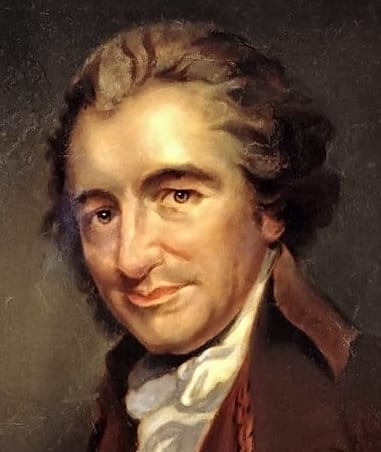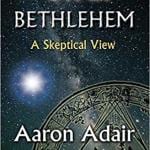
Even an unplugged clock is right twice a day. And it’s relentlessly wrong, too, for all but two minutes in a 24-hour day. Atheist author and polemicist John W. Loftus cited G. K. Chesterton in his article, “Excerpt From “Unapologetic: Why Philosophy of Religion Must End” (3-24-20): “If something is worth doing, it’s worth doing badly.” Then, lo and behold, he supported his own citation of this famous maxim by doing precisely that. He opined:
My specialties are theology, philosophical theology and especially apologetics. I am an expert on these subjects even though it’s very hard to have a good grasp of them all. . . . [a] theologically sophisticated intellectual . . .
Look at just a very brief listing of historic famous American atheist authors . . . Women like Elizabeth Cady Stanton, Madalyn Murray O’Hair and Ayn Rand. Men like Thomas Paine, Robert Ingersoll and Mark Twain, or scientists like the prolific Isaac Asimov and Carl Sagan.
The only problem is that Elizabeth Cady Stanton, Thomas Paine, and Mark Twain were not atheists! Loftus got three out of eight (38%) wrong. This is rather elementary stuff. It’s tough to be this wrong in an age of almost instant verification or (disproof) with the remarkable searching capabilities of the Internet, and all the online books
Elizabeth Cady Stanton was (like Albert Einstein) a pantheist (“god is all”):
What we call God is the infinite ideal of humanity. The preposterous, ridiculous absurdity of supposing God so defined to be of the male sex, and to call God ‘him,’ does not need a word to make it apparent. This ideal which we all reverence, and for which we yearn, necessarily enfolds in One the attributes which, separated in our human race, express themselves in Manhood and Womanhood. . . .
The sun moon & stars the constellations the days & nights, the seasons…the centripetal & centrifugal forces, positive & negative magnetism, the laws of gravitation cohesion attraction are all immutable and unchangeable one & all moving in harmony together. God was to us sunshine, flowers, affection, all that is grand and beautiful in nature. . . .
I think the next form of religion will be the ‘Religion of Humanity,’ in which men and women will worship what they see of the divine in each other. (Elizabeth Cady Stanton, cited at Pantheism.com)
Thomas Paine was a deist. He stated in his work, Age of Reason (Part First, Section 1):
I believe in one God, and no more; and I hope for happiness beyond this life. . . .
. . . man would return to the pure, unmixed and unadulterated belief of one God, and no more. [as a good and desirable thing]
. . . as if the way to God was not open to every man alike. . . .
No one will deny or dispute the power of the Almighty to make such a communication, if he pleases.
More evidence of Paine’s espousal of (non-atheist) deism:
Paine’s deism—the belief in God, but the eschewing of organized religion—is often erroneously confused with atheism. (Jonathan Marker, “Thomas Paine’s Attitudes Toward Religion Impacted His Legacy, Author Says”, National Archives News, 10-18-19)
In The Age of Reason he advocated deism, promoted reason and free thought and argued against institutionalized religion in general and Christian doctrine in particular. (Wikipedia, “Thomas Paine”)
[T]he only true religion is Deism, by which I then meant, and mean now, the belief of one God, and an imitation of his moral character, or the practice of what are called moral virtues – and that it was upon this only (so far as religion is concerned) that I rested all my hopes of happiness hereafter. So say I now – and so help me God. (Thomas Paine, in The Theological Works of Thomas Paine, [1824], R. Carlile, p. 138)
For a man so frequently called an atheist, Paine shows a remarkable confidence in the divine order of the creation. . . . The Age of Reason is not an atheist tract, but a deist one. It combines scathing criticism of claims to authority for the bible by religious authorities, with an expression of confidence in a divinely ordered world, . . .
Although the later parts of Age of Reason descend into detailed interpretation and controversy, and lose much of their intuitive appeal, the first part is a powerful confession of rationalist faith in a divine creator whose design can be appreciated by man in the Bible of Creation, whose principles are eternal, . . . (Stanford Encyclopedia of Philosophy, “Thomas Paine”)
The only religion that has not been invented, and that has in it every evidence of divine originality, is pure and simple Deism. (Thomas Paine, The Complete Writings of Thomas Paine, 2 vol., edited by P. S. Foner, Secaucus, New Jersey: The Citadel Press, 1945, Vol. I, 600; cited in the previous entry)
The Theophilanthropists: A society founded by Paine and others in 1797. It was one of the first ethical societies of the world. It came from the Greek and meant, love of God and Man. The society met in a circle or a ring which symbolized an unbroken or unending devotion to God. The spirit of humanity was the basis for a moral life on earth. Theophilanthrophy was rooted in the spiritual philosophy of the Illuminati that Bonneville brought from Germany. God was responsible for creating the universe but not responsible for man’s actions. Atheists are mistaken. They are short sighted because they ascribe everything they perceive to the innate properties of matter and ignore the rest by saying that matter is eternal. God creates everything, including the sun, stars, planets, etc. All the principles of science are of a divine origin. Those principles are eternal and immutable. They are immortal because they continue to exist after the matter that expresses them has dissolved. Man, being in the position to rationally apprehend these eternal principles, is himself immortal and his soul does not die when the body turns to dust. Man accounts to God for his belief and not to other men. The society studied Greek thinkers and poets as well as Confucius and other Chinese philosophers. The idea of the society was to encourage people to live a life of spiritual values and to come into harmony with God, Nature and Man. (James Tepfer, “The Religious and Political Philosophy of Tom Paine”; see much much more related material in this article)
Nor was Mark Twain an atheist. I have written about his religious belief in another article of mine. Philosopher David Hume was not an atheist, either (see the proof).
Related Reading
***
Photo credit: Thomas Paine [public domain / Wikimedia Commons]
***

















